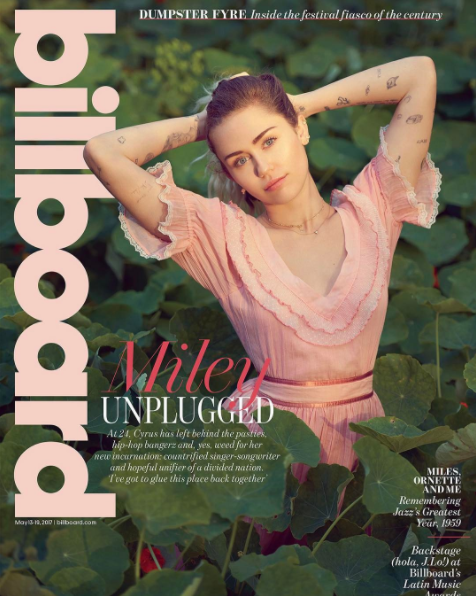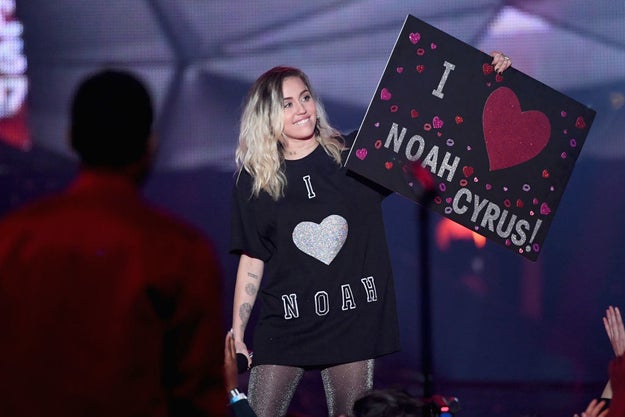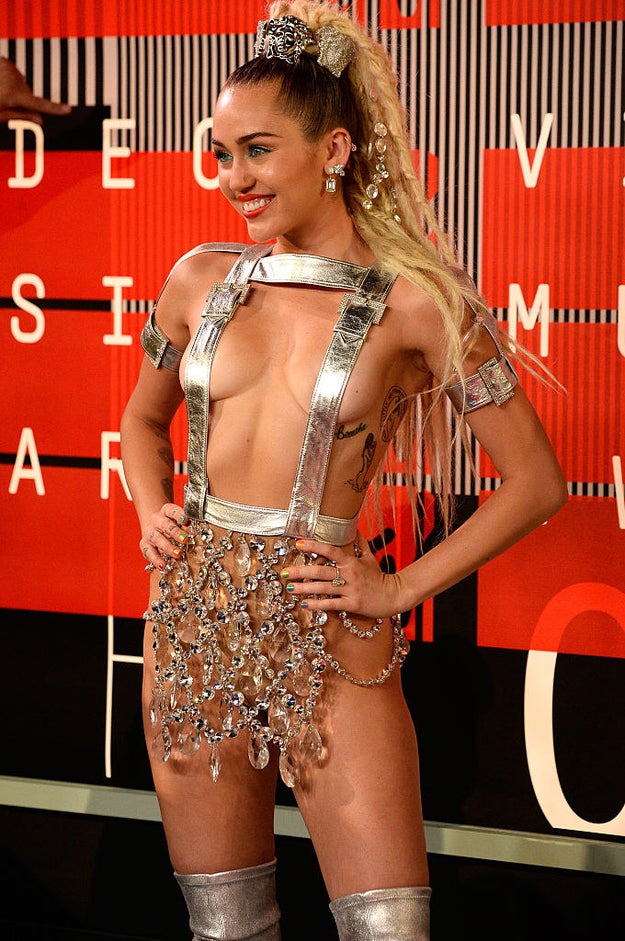
1. On Wednesday, Billboard published an interview with Miley Cyrus — who also appears on this month’s cover — where she talked about everything from her love life to the new music her fans have been eagerly anticipating.
2. Though most of the interview was fairly innocuous, the star’s comments about hip-hop have stirred a bit of controversy.
Cyrus was asked if she was singer-songwriter Melanie Safka influenced her forthcoming album. “She did, and I grew up with her,” Cyrus said to Billboard. This then segued into a brief comment about why she distanced herself from hip-hop music.
3. Cyrus talked about other music she was into at the moment, saying, “But I also love that new Kendrick [Lamar] song [“Humble”]: ‘Show me somethin’ natural like ass with some stretch marks.’ I love that because it’s not ‘Come sit on my dick, suck on my cock.’”
“I can’t listen to that anymore. That’s what pushed me out of the hip-hop scene a little. It was too much ‘Lamborghini, got my Rolex, got a girl on my cock’ — I am so not that,” she told the magazine.
4. Here’s the full quote, for context, from Billboard:
Did folk singer Melanie Safka [with whom Cyrus performed in 2015] influence you?
“She did, and I grew up with her. But I also love that new Kendrick [Lamar] song [“Humble”]: “Show me somethin’ natural like ass with some stretch marks.” I love that because it’s not “Come sit on my dick, suck on my cock.” I can’t listen to that anymore. That’s what pushed me out of the hip-hop scene a little. It was too much “Lamborghini, got my Rolex, got a girl on my cock” — I am so not that.
I was torn on whether I was going to work with certain producers that I really like. But I feel if we’re not on the same page politically … My record is political, but the sound bite doesn’t stop there. Because you can write something beautiful and you know E! News will ruin our lives and say, “This is a political record.” Because then I’m the Dixie Chicks and I’m getting my album smashed in the streets, and that’s not what I want. I want to talk to people in a compassionate, understanding way — which people aren’t doing.”
5. The star’s comments started a conversation about hip-hop culture and privilege, and people took to Twitter to comment on the interview.
Miley Cyrus has disrobed her black culture cloak after profiting from it
— litgitte bardot (@MimieZaforas)
6. People claimed Cyrus used hip-hop to her benefit and that her comments stereotyped the genre.
MILEY CYRUS DID EXACTLY WHAT SOMEONE WITH PRIVILEGE DOES! SHE CAN HOP IN AND OUT OF WHATEVER SHE WANTS WITHOUT CONSEQUENCE
— ♡ JUJU ♡ (@QueenIdle)
7. Others said it was another example of black culture being “used when it’s convenient.”
Miley Cyrus moving away from hip-hop is a nice example cultural appropriation…black culture is used when its convenient
— Devonte King (@deeruns_)
8. And some highlighted that this was how other people in the music industry have operated, way before Cyrus was making music.
So Miley Cyrus is caucasian again. Neat. Straight from the Timberlake handbook.
— Margaret Atwood Stan (@KingBeyonceStan)
9. One thread on Twitter showed that the debate may be more than just a black and white issue. @the_olivia argued that Cyrus disagreeing with the “over-sexualization of women” wasn’t akin to dissing hip-hop.
@MrChristopherX How did she throw it under the bus? By saying she disagrees with the over-sexualization of women? I… https://t.co/V9KtNfRFNH
— Sailor Goon ☮ (@the_olivia)
10. Others defended Cyrus too, with one user saying she didn’t use black culture. “Let her explore her sound,” she tweeted.
Also, @MileyCyrus didn’t ‘used black culture in my opinion with Bangerz she’s in her fucking 20s let her explore her sound.
— Brittany Moore (@DementorsLoveMe)
11. “Miley Cyrus was appropriating black culture 2013-2016, but now that she’s returning to her roots, she’s dissing it,” someone else said, coming to Cyrus’ defense.
So to be clear… Miley Cyrus was appropriating black culture 2013-2016 but now that she’s returning to her roots, she’s dissing it? Lol
— mostly ok (@frecklesnlove)
12. Over the years, Cyrus has experimented with and invoked black culture into her art, which is what started the debate.
She’s also collaborated with people like Snoop Dogg and Timbaland, and on her 2013 album Bangerz, she worked with Mike Will Made It, one of the most sought out hip-hop producers in the industry.




![Cyrus talked about other music she was into at the moment, saying, "But I also love that new Kendrick [Lamar] song [“Humble”]: 'Show me somethin’ natural like ass with some stretch marks.' I love that because it’s not 'Come sit on my dick, suck on my cock.'"](https://img.buzzfeed.com/buzzfeed-static/static/2017-05/5/8/asset/buzzfeed-prod-fastlane-03/sub-buzz-27280-1493987530-2.jpg?resize=625:940)
